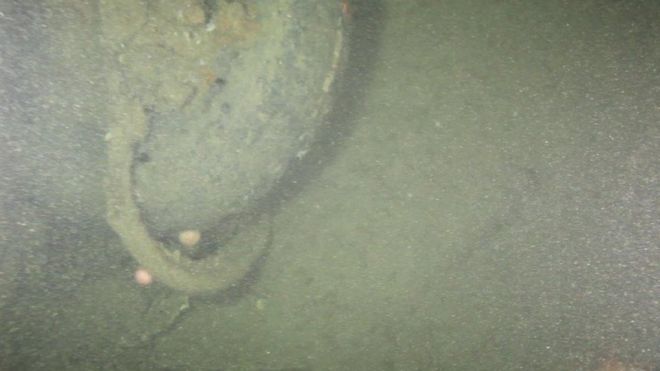
Wreckage of a British Second World War aircraft which assisted efforts to drive the Nazis from Norway is thought to have been discovered in the North Sea.
National Grid engineers happened across remains of the suspected RAF Short Stirling heavy bomber during a project to install a power cable between Britain and Norway below the seabed.
The wartime plane was used to carry supplies to Norwegian resistance fighters as they attempted to expel Hitler’s forces between 1940 and 1945.
The Joint Casualty and Compassionate Centre (JCCC) at the Ministry of Defence was notified so it could investigate any links to missing British servicemen.
Expert Bengt Stangvik, who was consulted about the find, said the four-engine RAF aircraft struggled to exceed an altitude of 15,000 feet – making it a target for Luftwaffe fighters.
He said: “Several Stirlings disappeared without a trace on missions to Norway in winter 1944-45.
“Based on the location of this wreck, it is probable that it was on a mission to drop supplies to the resistance forces in western Norway.”
Nineteen of the 30 British aircraft which vanished during the Norwegian resistance were Short Stirlings, he added, of which six are unaccounted for.
The latest find was unearthed by sonar equipment being used by National Grid to scan the ocean floor.
A camera was then sent down on a remote-controlled underwater vehicle to inspect it.
Nigel Williams, North Sea Link project director for National Grid, said: “When images of what appeared to be an aircraft wheel came through, you can imagine our surprise.
“It was only when experts investigated the images in more detail that we learnt there was a strong possibility it could be a British aircraft that served during World War Two.
“Sadly, it appears the pilot and the crew of this particular aircraft were never able to complete their mission.”
The JCCC said the identity of the aircraft could not be confirmed until it had received positive evidence.
Under the Protection of Military Remains Act 1986, the site of the wreckage is protected and could become classed as a war grave, JCCC spokeswoman Sue Raftree said.